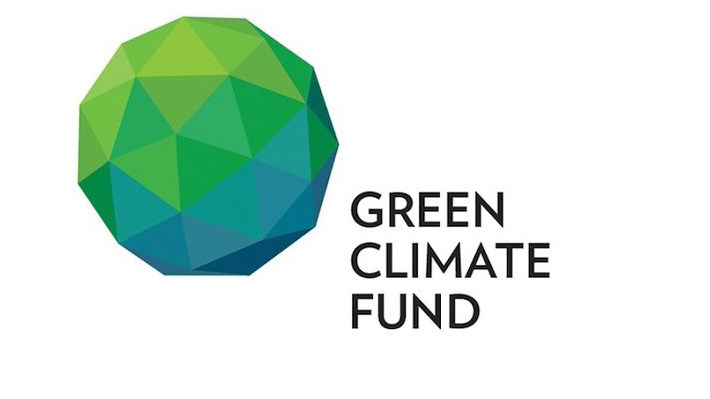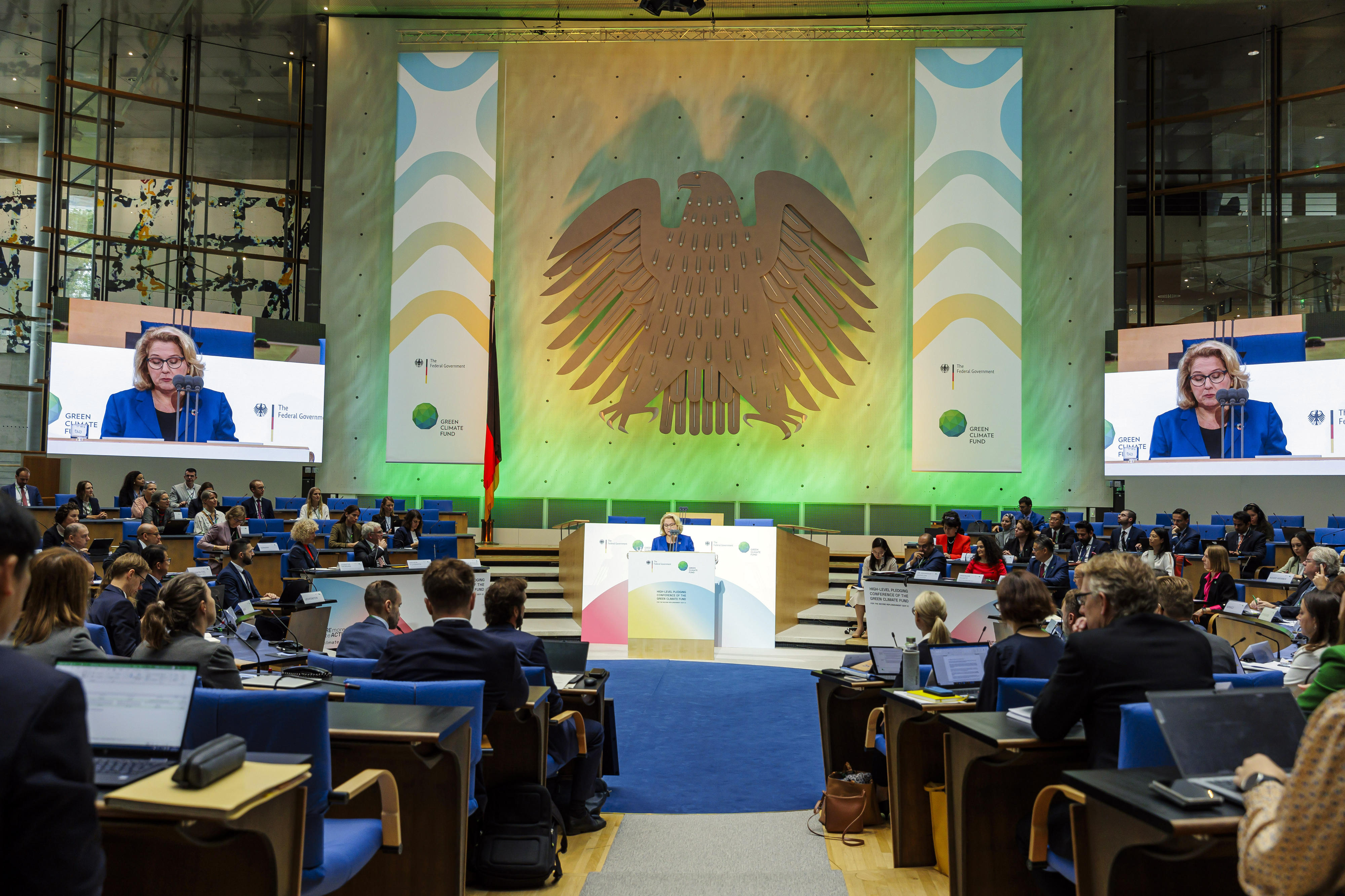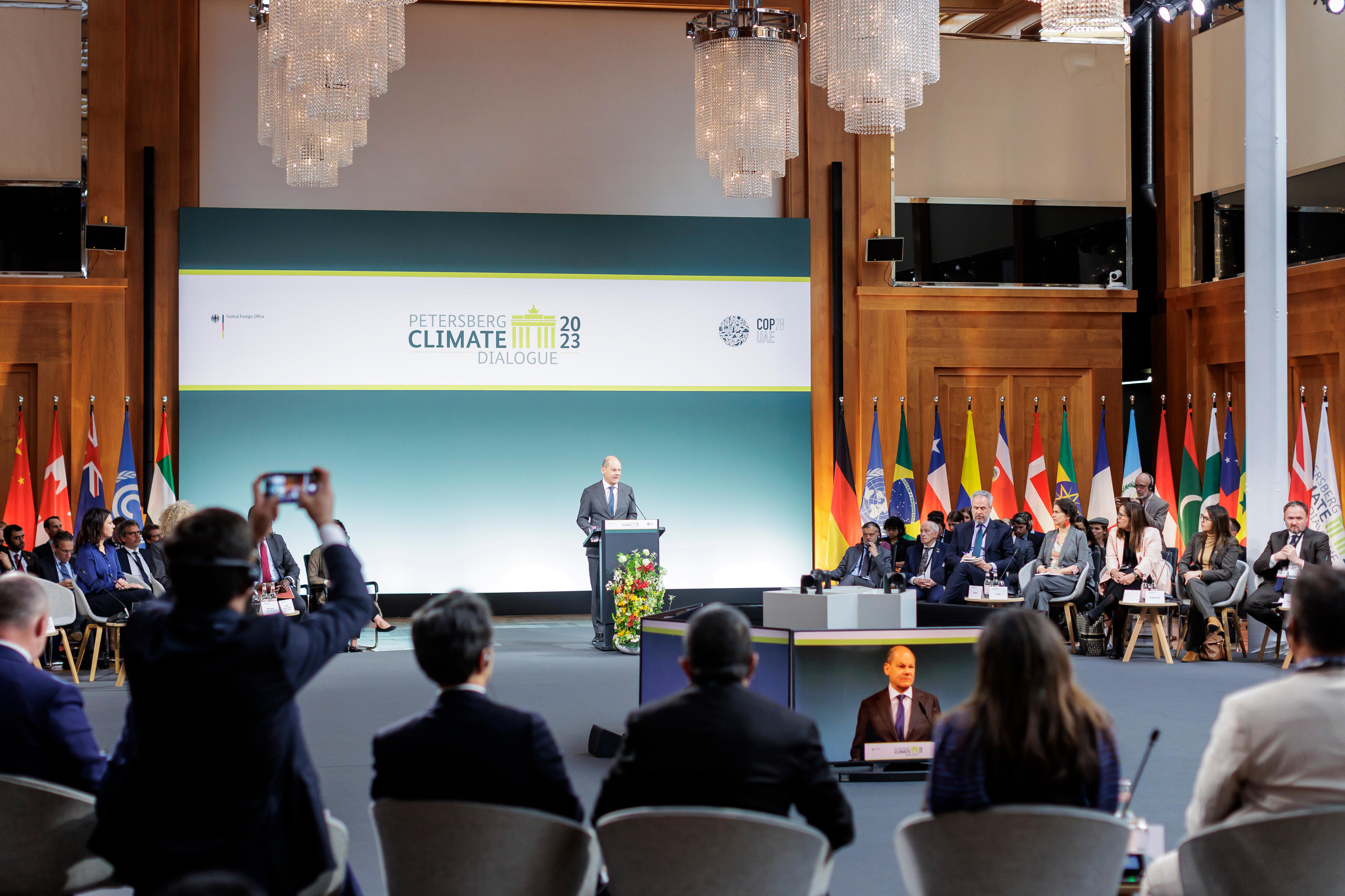Climate finance Green Climate Fund (GCF)
The Fund offers developing countries funding in the form of grants, loans, guarantees and equity for mitigation and adaptation programmes. The GCF also partners with the private sector to mobilise further capital for ambitious climate projects.
Since the Fund's establishment, some 50 countries have contributed a total of 29.6 billion US dollars. Up to now, the Fund has financed more than 300 projects, with a total volume of 18 billion US dollars (66 billion including co-financing) – going in roughly equal measure to mitigation and adaptation activities.
These efforts are creating enormous impact. GCF projects are intended to help avoid 3.2 billion tonnes of CO2 equivalent emissions and make about one billion people worldwide more resilient to climate risks. To date, GCF projects have saved 933 million tonnes of carbon emissions and directly or indirectly benefited 205 million people.
Support for vulnerable countries
The GCF's current Strategic Plan (2024-2027) focuses on giving national delivery partners from the Global South improved access to support. The GCF funds low-emission, climate-resilient sectors, provides assistance to particularly vulnerable countries as they address their adaptation and resilience needs, and fosters private sector involvement by greening financial systems.
The Fund also uses new financing instruments such as debt-for-climate swaps and local currency lending. Such lending can mitigate exchange rate risks for countries with less developed capital markets and improve the sustainability of climate action.
Germany's contribution
Germany is one of the biggest donors to the GCF, having pledged a total of 4.25 billion euros so far. For the Fund's initial capitalisation, Germany made a contribution of 750 million euros. In the first replenishment round, it doubled this amount, providing 1.5 billion euros. It further increased its contribution in the second replenishment, pledging two billion euros.
Germany's contribution to the GCF comes entirely from the BMZ's budget. Germany also sent a political signal at the diplomatic level by hosting the Fund's international replenishment conference in Bonn on 5 October 2023, chaired by then Development Minister Svenja Schulze. That conference generated a record total pledge of 10.6 billion US dollars from 33 countries for the years 2024 to 2027, and it raised public awareness of climate finance in Germany.
As at: 19/06/2024


